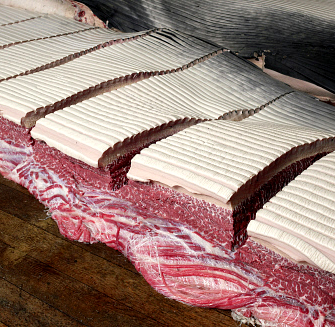Mass whale hunt held back for now

Japan was looking to slaughter about 4,000 whales over twelve years for ‘research purposes’, but the independent review panel found it failed to provide adequate justification for lethal studies.
Japan claimed it had to kill hundreds of whales every year in order to calculate the size of populations necessary for a return to sustainable commercial hunting.
The hunters also claimed to be seeking a better understanding of the Antarctic marine ecosystem.
The new plan comes as a result of the International Court of Justice last year ordering Japan to stop its annual Southern Ocean hunts, given that they have no scientific basis.
Patrick Ramage, from the International Fund for Animal Welfare, said the expert panel made a similar finding this time too.
“[Japan should be encouraged] to join Australia, the UK, the United States and so many countries around the world that are pursuing 21st century science,” Mr Ramage said.
“There's far more to learn from observing whales — living whales in the marine environment — than by killing them and chopping them up and examining their bits.”
The commission Japan provided inadequate grounds and reason for the mass-killing of the rare mammals.
Specifically, Japan was not able to argue that the lethal research was necessary, when there are perfectly adequate non-lethal research techniques long-championed by the Australian Government.
Adjunct Professor of Antarctic Climate & Ecosystems CRC at the University of Tasmania, Tony Press, has detailed the recent state of Japanese whaling in an article for The Conversation.







 Print
Print